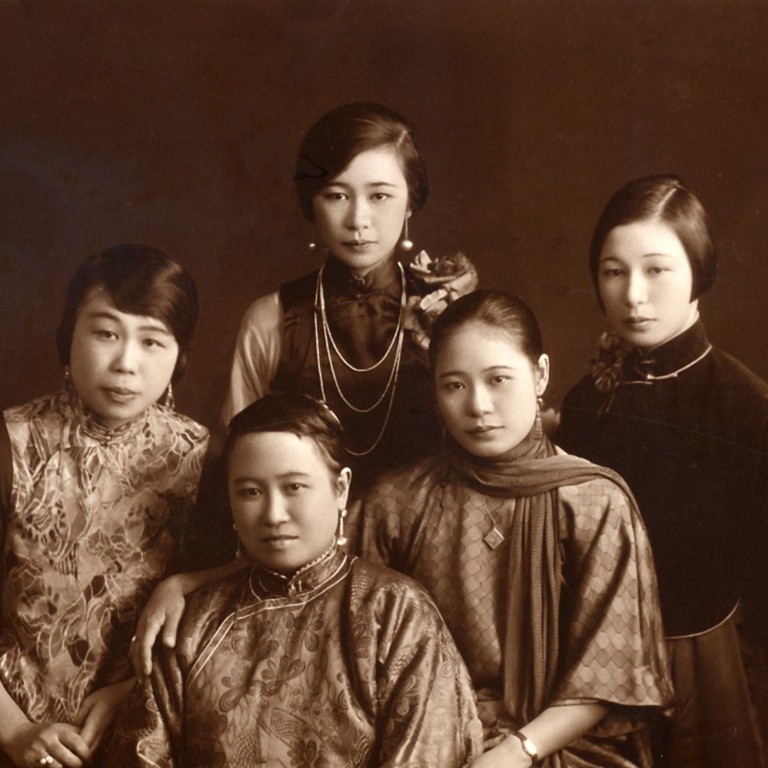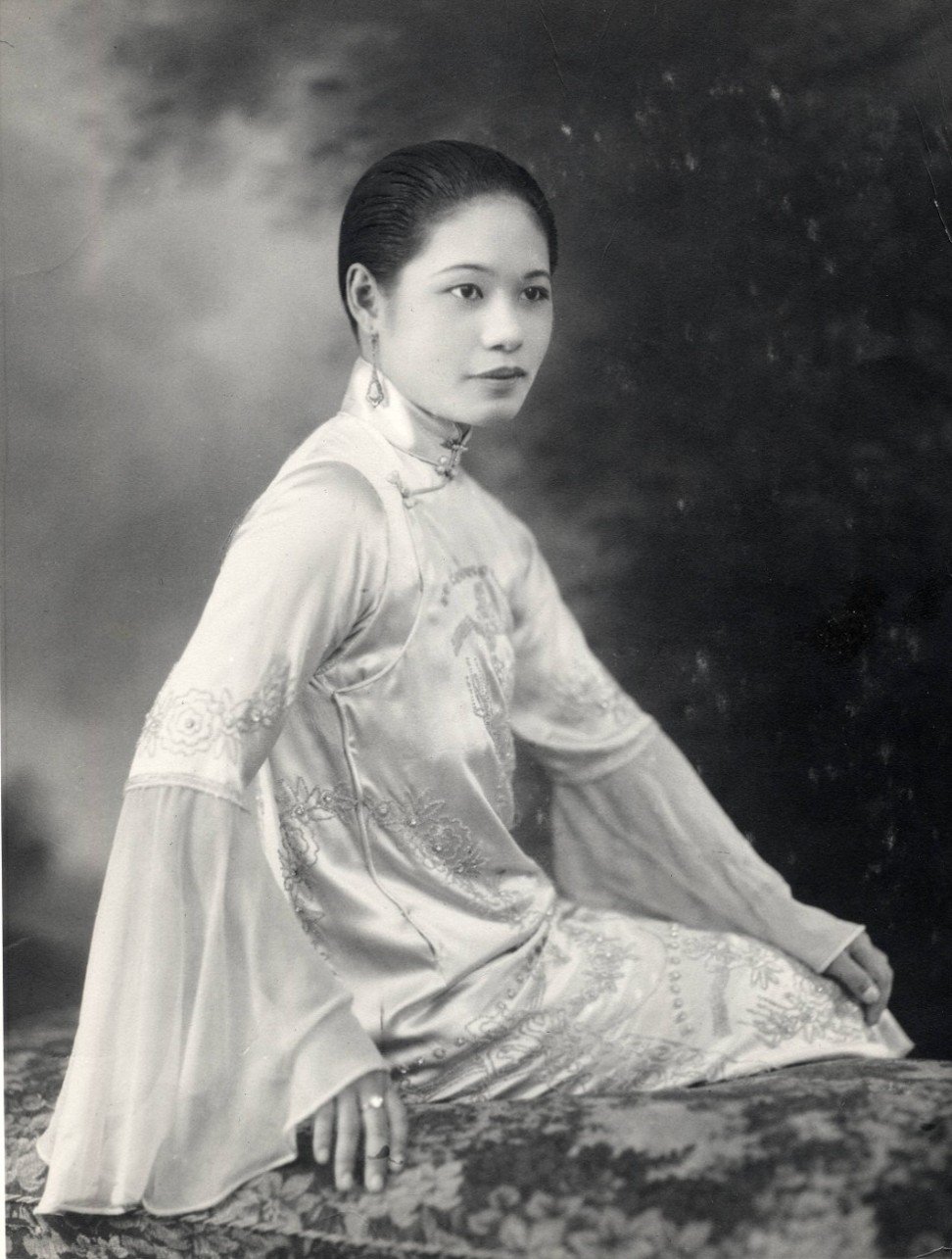
Women in wartime China: two memoirs show how rise of communists struck well-off lives
- ‘Betwixt and Between’ and ‘Shanghai Daisy’ capture China’s turmoil of the 1940s and ’50s and how the lives of two women, one a Wing On heiress, changed
- While both suffer from a certain lack of narrative, they are thought-provoking and valuable first-person accounts in English
There comes a time when, as people age, events move from being “within living memory” to “history”. There is great urgency to capture these voices in places such as China where, for reasons of war and turmoil, fewer voices were captured at the time.
Hong Kong-based Earnshaw Books is now publishing the memoirs of two women, remarkable in their own ways and similar in others, who lived through these times and who, atypically, have set down their memories in English.
Margaret Sun and Daisy Kwok have some things in common: although both spent their formative years (and in Kwok’s case, the rest of her life) in Shanghai, both were from families from southern China. Kwok was a bit older, but both knew Shanghai during the Japanese occupation, as well as the period before.
Sun’s Betwixt and Between is the more substantial of the two books. Sun was born into what sounds like a middle-class family – her father worked for German conglomerate Siemens – but the Chinese civil war, and her father being accidentally caught up in a foiled embezzlement, almost reduced them to poverty.

Sun herself sold cigarettes and snacks on the street outside the building where three generations of the family lived in one room. The company her family kept, however, remained reasonably cosmopolitan and, somehow through all this, Sun grew up with considerably fluency in English.
In 1956, Sun volunteered to go work in Xinjiang, a region in China’s far west that has historically been mainly Muslim. The next two decades are a time of a few highs (such as the region’s famous melons), but mostly considerable hardship.
Sun, it appears, was (and presumably still is) a woman of considerable intellect: not only did she speak Cantonese, Shanghainese and Mandarin, and could read and write English (she would seek out English-language books, which were as rare as hens’ teeth in Xinjiang), she also picked up Uygur and Kazakh. These sections of the book are filled with a wealth of anecdotes and observations.
“I have milked cows, collected cowpats, taken in knitting and worked as a day labourer. I have taught, done interpretation and translation. I have done whatever I had to do,” she says.
Despite having little formal education, Sun ended up teaching English at Xinjiang University.
Maoism’s inherent contradictions unpacked in new book
In other circumstances, Kwok would have been an heiress to the Wing On retail empire. But the 1949 communist revolution put paid to that.
Born in Australia in 1908, Kwok moved to Shanghai as a young girl when her father went to the city to set up the Wing On department store on Nanking Road.
Although almost all her relatives had left Shanghai by 1949, and despite having had a number of opportunities to leave herself, Kwok stayed on, and was slowly swallowed up by China’s turbulent history.

While Kwok’s earlier life was evidently both glamorous and exciting – her account contains equal parts parties and run-ins with gangsters – the appeal of her memoir lies in its scope as her life traces out a trajectory from princess to peon. There is a Doctor Zhivago aura to this story, of someone trying to maintain some sort of normality, concern for family, even keeping up what she felt were standards, in the harshest of circumstances.
Her memoir, Shanghai Daisy, has a number of surprising details, such as her family continuing to celebrate Christmas through the upheaval. The good life seeped away only slowly.
“The changes to life in Shanghai didn’t take place immediately after the communists arrived in 1949. It was a more gradual process,” publisher Graham Earnshaw notes in his preface. “… Life continued remarkably unchanged for many years for many people in many ways, through to the end of the 1950s.”

Kwok mentions the “Park Hotel’s new restaurant in the penthouse” in the 1950s, which implies, Earnshaw notes, that “people other than the lumpen proletariat were around to dine there”. And Kwok somehow managed to keep a maid until 1966.
Still, the book is very short, with fewer than 100 pages from Kwok. It is book ended by the lengthy preamble from publisher Earnshaw and a similarly lengthy epilogue by the former American diplomat Tess Johnston, both evidently close friends of the author. Kwok died in 1998; why these memoirs remained in the drawer, as it were, for two decades is unclear.
However valuable both books are as first-person accounts, both suffer from a certain lack of narrative, as well as from repetition, digression and chronological jumping about. But we are fortunate to have either, and given the circumstances under which they were written, any literary shortcomings can and should be forgiven.
Both are thought-provoking, individually and jointly: were the various Chinese political campaigns harder to endure if one started off affluent? Sun, friendly with Uygurs and Kazakhs, tolerant of Muslim beliefs and practices, observant to a fault, is still in Xinjiang. She effectively ends her story in 1978; the years to her retirement in 2002 are covered at a gallop. Regarding conditions today, Sun keeps her own counsel.
Asian Review of Books

